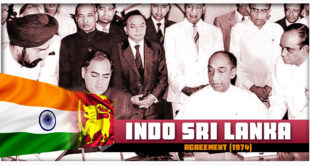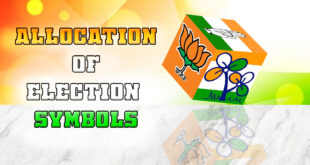Passing a unanimous judgement on the various issues related to the split in Shiv Sena in June 2022, the Supreme Court made strong observations about the role of the then Governor of Maharashtra and the Speaker of the Legislative Assembly.
‘Speaker to decide disqualification’
The SC said the issue of disqualification ought to be decided as per established procedures in law and the Speaker is the appropriate authority for this under the Tenth Schedule of the Constitution, which lays down the anti-defection law.
- It also clarified that an MLA has the right to participate in proceedings of the House regardless of pendency of any petitions for disqualification.
- ‘Speaker must consider Shiv Sena constitution’
- The SC said that while deciding disqualification pleas, the Speaker must consider the constitution of the Shiv Sena.
- It said that as the Tenth Schedule’s third paragraph has been removed, the ‘split’ in the party will no longer be a defence available to MLAs facing the proceedings.
- Paragraph 3 of the Tenth Schedule protected defectors as long as one-third of the members of a political party formed a separate group.
- It was removed by the Constitution (91st Amendment) Act, 2003.
‘Governor didn’t act in accordance with law’
- The court said that then Maharashtra Governor was not justified in calling for a floor test, as he did not have objective material to show that the incumbent government had lost the confidence of the House.
- The court said the Governor had acted upon an inference that a section of the Shiv Sena wished to withdraw their support to the government.
- It said that the power of the Governor to act without the aid and advice of the Council of Ministers is of an extraordinary nature, and must be exercised with circumspection within the limits of law.
‘Legislature party, political party distinct’
- The court said that as per provisions of the Representation of the People Act, an association of individuals calling itself a political party has to be registered with the EC.
- The court said that Parliament had recognised the independent existence of a legislature party to the limited extent of providing a defence to actions of legislators of the political party.
- It held that it is the political party and not the legislature party which appoints the Whip and the Leader of the party in the House.
- Therefore, it said the Speaker must recognise only the whip and leader who are duly recognised by the political party.
‘Speaker and EC can adjudicate issues concurrently’
- The court said it could not accept the contention that the EC was barred from deciding on the party symbol dispute until the Speaker decided the disqualification pleas before him.
- This would amount to indefinitely staying proceedings before the ECI, as the Speaker’s decision would attain finality only after the appeals against his decision were disposed of.
- Referral of Nabam Rebia case to larger bench
- The five-judge Bench referred certain issues related to its 2016 judgment in the Nabam Rebia case to a larger Bench.
- One of the issues is whether a notice for removal of a Speaker would restrict the powers of the Speaker to issue disqualification notices to MLAs.
SOURCE: THE HINDU, THE ECONOMIC TIMES, PIB
 Chinmaya IAS Academy – Current Affairs Chinmaya IAS Academy – Current Affairs
Chinmaya IAS Academy – Current Affairs Chinmaya IAS Academy – Current Affairs



